(In)accessibility of justice: why are cases delayed in Ukraine?
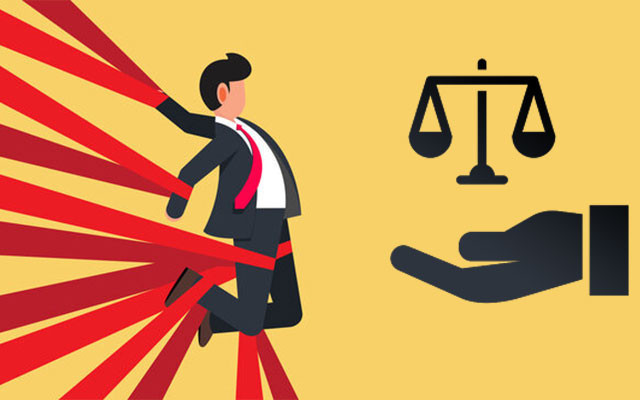
The timeframe for court hearings in Ukraine is far from the European criterion of reasonableness. And it seems that the blame for this is now being shifted to lawyers who obstruct justice by filing «unnecessary» motions and challenges. According to some politicians, this should be punished by the court on the spot.
Recently, the media have begun to publish articles that rather one-sidedly cover the problem of the length of time for consideration of cases. The public is being led to believe that the problems of the Ukrainian judiciary are the fault of lawyers who constantly abuse their rights.
A number of draft laws have already been prepared for consideration, according to which judges will establish the facts of abuse by separate rulings and punish the «offenders» themselves or pass their decisions to the disciplinary bodies of the bar. In this case, the latter would play the role of statisticians.
Such a distorted understanding of the issue may violate the principle of independence of the bar.
It is clear that a Ukrainian judge today already has levers to respond to violations of the procedural codes by the parties. And by implementing the principle of legal certainty in the interests of the parties, he or she is empowered to counteract the so-called abuse of rights.
But why is this not happening, why introduce an additional mechanism of pressure that ultimately contradicts the Constitution?
The Ukrainian National Bar Association invites all practicing attorneys to join the discussion of the problem of efficiency and accessibility of justice and to share their own experience in courts:
- what, in your opinion, are the real reasons for the lengthy consideration of cases by Ukrainian courts;
- what do you see as legitimate mechanisms for the courts to implement the principle of legal certainty in the context of observance of reasonable time limits?
- whether you have encountered «abuse of rights» by procedural opponents: both fellow lawyers and representatives of the prosecution, and if so, which are the most common;
- whether judges can abuse their rights, whether you have encountered this in court hearings, if so, in what form it took, which are the most common;
- in which cases motions and statements of lawyers filed in accordance with the procedural law may (or may not) be perceived as abusive and how judges can and should respond to this;
- what part of all the applications and motions filed by you is satisfied by the court (in civil, administrative, commercial and criminal proceedings)
- whether the courts take into account your workload (participation in investigative actions, other proceedings, business trips, illness, etc.) when setting the date and time of court hearings;
- whether you consider the postponement of court hearings due to the absence of a lawyer or prosecutor to be a widespread phenomenon;
- in what forms the «accusatory bias» of the judiciary can affect the duration of criminal proceedings.
Answers to these questions, as well as opinions and examples from your own practice, can be shared until October 18 with the coordinator of the UNBA Committee on Protection of Advocates' Rights and Guarantees of Practice of Law Vitaliy Fedirko (v.fedirko@unba.org.ua).
All the collected information will be analyzed and used in the preparation of the report on the state of efficiency and accessibility of justice, which the UNBA will send to national and international institutions.
Popular news

Discussion
Why lowering the age of marriage lacks legal logic
Although until 2012 there was a provision in family law that allowed children to marry from the age of 14 under certain circumstances, its return to Ukrainian law would contradict international obligations and the logic of criminal law.
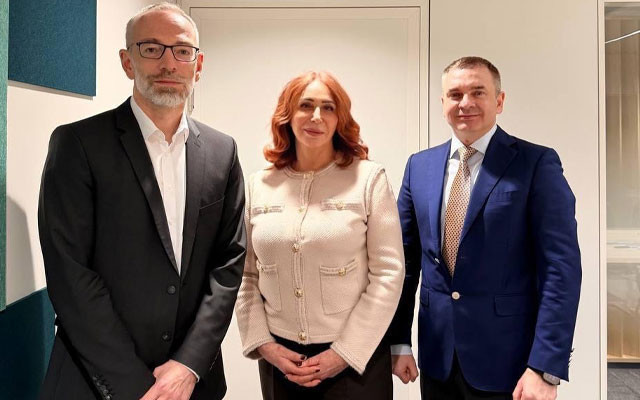
European integration
Open dialogue between the UNBA and the European Commission on the path to EU
The Ukrainian National Bar Association held a working meeting in Brussels with Mr Wolfgang Nozar, Head of Unit for Governance, Rule of Law and Financial Assistance, Directorate-General for Enlargement and Eastern Neighbourhood (DG ENEST), European Commission.

Self-government
A report on Ukrainian advocacy was presented in the European Parliament
Can a shadow report on advocacy replace the political framework of the Roadmap on the rule of law with demands for the restructuring of self-government? Where is the line between accountability and the seizure of institutions? And how can we respond to narratives with data rather than impressions?
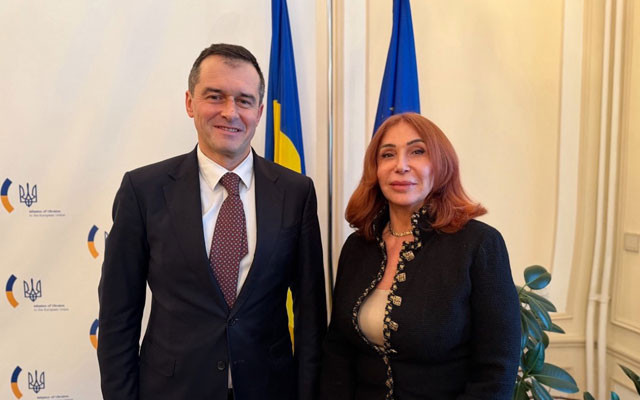
European integration
UNBA and Ukraine's representation to the EU have synchronized their priorities
On February 5, in Brussels, the President of the UNBA, BCU Lidiya Izovitova held a working meeting with the Ambassador Extraordinary and Plenipotentiary of Ukraine, Representative of Ukraine to the European Union Vsevolod Chentsov.
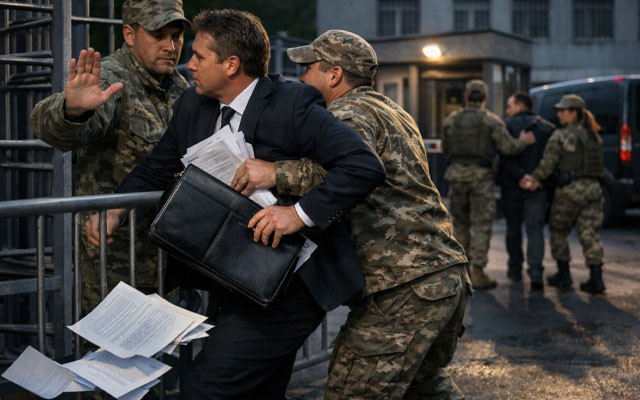
Guarantees of the practice of law
Proceedings opened following attack on advocate in Dnipro
The Committee for the protection of advocates' rights and guarantees of legal practice of the UNBA appealed to law enforcement agencies in connection with an advocate's report of an attack while performing his professional duties. The information was entered into the Unified Register of Pre-trial Investigations and a pre-trial investigation was initiated.
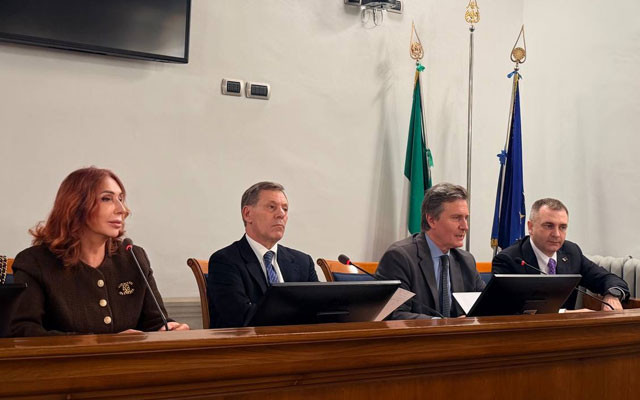
Interaction
«With us — to Europe»: Italian advocacy supports UNBA initiatives
On January 30, a meeting was held in Rome between a delegation from the Ukrainian National Bar Association and the National Bar Council of Italy (Consiglio Nazionale Forense, CNF) on the standards and practices of the legal profession and their significance for Ukraine's European integration process.
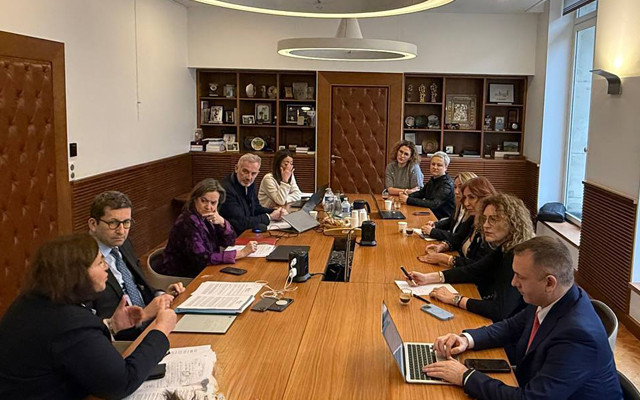
Interaction
France confirms cooperation with UNBA on reforms in the field of the rule of law
On January 29, a working meeting between representatives of the Ukrainian National Bar Association and the French National Bar Council (Conseil National des Barreaux, CNB) took place in Paris.
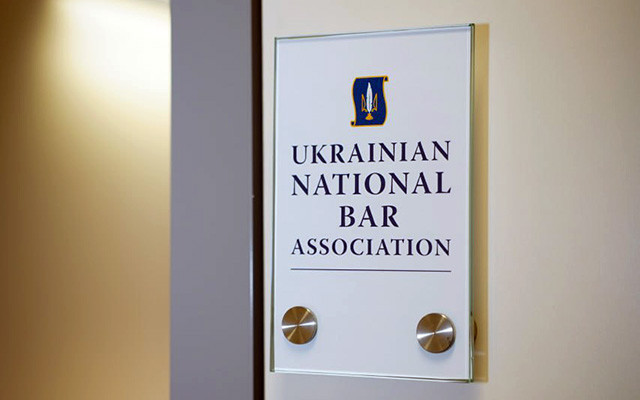
Abroad
UNBA office opens in EU capital
To strengthen the institutional presence of the Ukrainian advocacy community at the European level, an office of the Ukrainian National Bar Association has been opened in Brussels (Belgium), which will serve as a permanent platform for dialogue with European partners.
Publications

Volodymyr Matsko Extradition as a systemic form of rights violations

Victoria Yakusha, Law and Business The anti-corruption vertical cannot «take care» of the Bar as an institution, - acting head of the HQDCB

Censor.net Protecting advocates – protecting justice: addressing concerns about the new law

Ihor Kolesnykov A BRIEF SUMMARY REGARDING THE APPLICATION OF THE ORDER ON EXTENDED CONFISCATION IN LATVIA REGARDING FINANCIAL ASSETS OF…

Valentyn Gvozdiy WORKING IN A WAR ZONE

Lydia Izovitova Formula of perfection

Sergiy Vylkov Our judicial system is so built that courts do not trust advocates

Iryna Vasylyk Advocacy in the proclamation of Independence of Ukraine
